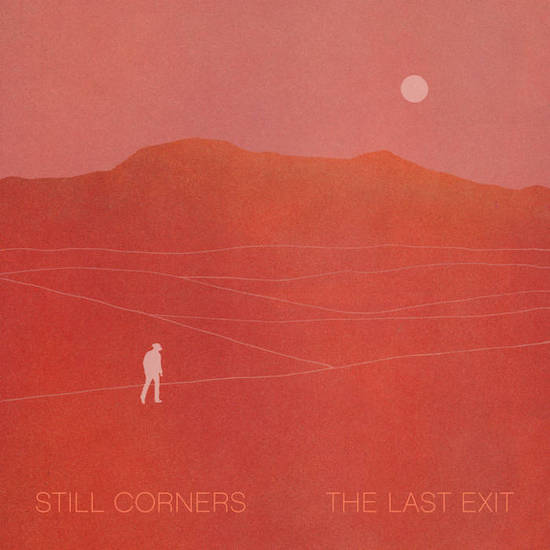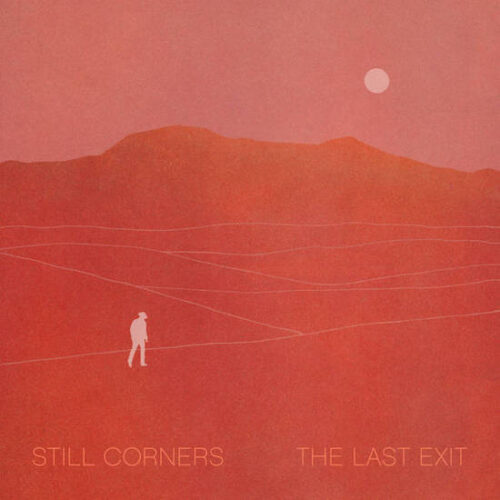America probably means quite different things to the two members of Still Corners. For multi-instrumentalist and producer Greg Hughes it’s home. He was born there, growing up in Arizona and Texas. Yet the duo’s latest album paints a romantic picture of the States that feels far more inspired by English singer Tessa Murray’s cinematic imagination. Penned in part during lockdown, The Last Exit is full of songs about lost highways, bad towns and, on the title track, being lost in the desert with Old Scratch, “the devil trailing just behind”.
It’s the duo’s fifth album and the furthest they’ve come from their early roots as Broadcast-y retro futurists and later excursions into straight up synth pop. The electronics are still present, but now very much to the background, with Hughes’ beautifully-played lap steel guitar the record’s defining sound. At its best it conjures widescreen vistas, windswept badlands and moments of high drama.
On ‘Mystery Road’ Murray’s protagonist flees the city for the desert only to encounter an ominous spectre by the side of the road. ‘Static’ envisions an apocalyptic scenario (“The world has gone blue / Nothing we can do / Just static on the line”) that feels right at home in 2021 (it also nods knowingly to ‘Wicked Game’, a clear inspiration here). Album highlight ‘White Sands’ is another roadside tale, with an ageless drifter roaming the New Mexico badlands for untold years. It feels like a natural progression from some of the tracks on 2018’s Slow Air.
Sometimes they lay this stuff on a bit thick. The acoustic twang of ‘Bad Town’ is plenty atmospheric without adding coyotes howling in the distance. And while Murray’s lyrics are consciously evoking images of old timey Americana – desolate arcades, voodoo rites, thunder in the mountains – your mileage will vary on whether you find it charming or cheesy.
Regardless, The Last Exit is a road trip worth taking. Murray’s sultry croon is effortlessly affecting on tracks like ‘Crying’, a break up song underpinned by deliciously wonky synths and a Morricone-esque whistle. Hughes’ production has never sounded so luxurious. He has referred to the album’s atmosphere as “desert noir” and, indeed, The Last Exit offers a sun-baked equivalent to the dewey, Pacific Northwest pop of Chromatics. To invoke dream pop’s eternal muse, David Lynch, it’s more Wild At Heart than Twin Peaks.



